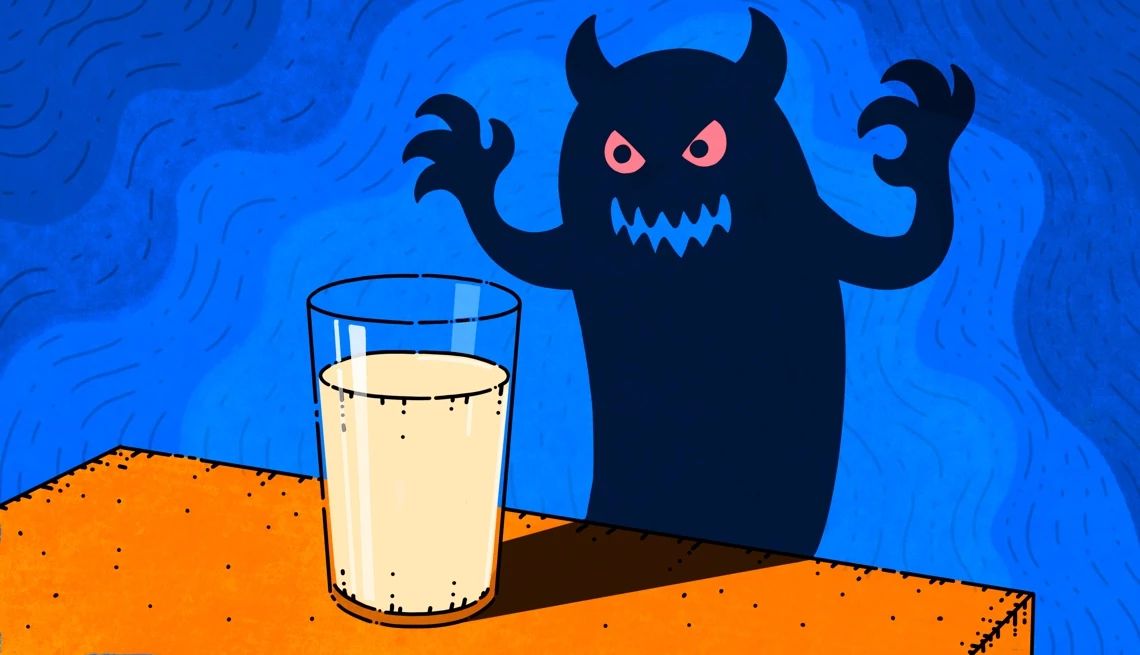AARP Hearing Center


If a glass of milk before bed seems to help you sleep better, guzzle on. But if you feel that dairy before bed interrupts your sleep — or leads to nightmares — you may be right, according to a new report.
Survey data published June 30 in Frontiers in Psychology showed a link between nightmares and lactose intolerance, a condition that can become more common with age. The survey data showed that the worse the subject’s lactose intolerance was, the more intense the nightmares they reported.
Cheese has been thought to be the culprit behind nightmares, which is why Tore Nielsen, lead author and a professor at the University of Montreal, wanted to see if there was any actual link. Though the reported association could explain why some people experience nightmares persistently, experts say you should think before you ditch dairy as a way to reduce upsetting dreams.
Lactose intolerance tied to nightmares
Nielsen led a team that surveyed 1,082 college students about their sleep quality, eating habits, physical and mental health, and relationship with food.
Among participants, about 5 percent of students thought what they ate was related to their dreams, says Marie-Pierre St-Onge, a professor of nutritional medicine at Columbia University Irving Medical Center who wasn’t involved in the research.
The people who reported they had severe stomach symptoms from lactose intolerance were more likely to report more intense nightmares, which were self-reported using a nightmare score. Higher nightmare index scores were also linked to people who reported having food allergies, the data showed.
Women were more likely to report poor sleep and nightmares, and nearly twice as likely as men to report a food intolerance or allergy, according to the report.
Unlike lactose intolerance, which is when you don’t make enough lactase — the enzyme that breaks down lactose—a milk allergy is an immune system response to milk proteins that can be life-threatening.
Results showed that about 40 percent of students said that their diet affected their sleep quality — about half reported that it was for the better, and the other half said food made things worse. Among respondents who believed that food affected their dreams, about 31 percent said sweets were the culprit and 22 percent said dairy was to blame.
Nielsen said that checking for lactose intolerance could alert people to avoid a certain food and thwart sleep interruptions.




































































More From AARP
8 Foods to Protect Your Muscles as You Age
Browse foods that can help prevent muscle loss, or sarcopenia, in older adults.
Quiz: What Foods Are Good for Brain Health?
Test your knowledge of the MIND diet, the gut microbiome and more
25 Processed Foods That Are Surprisingly Healthy
Surprising health benefits of processed foods